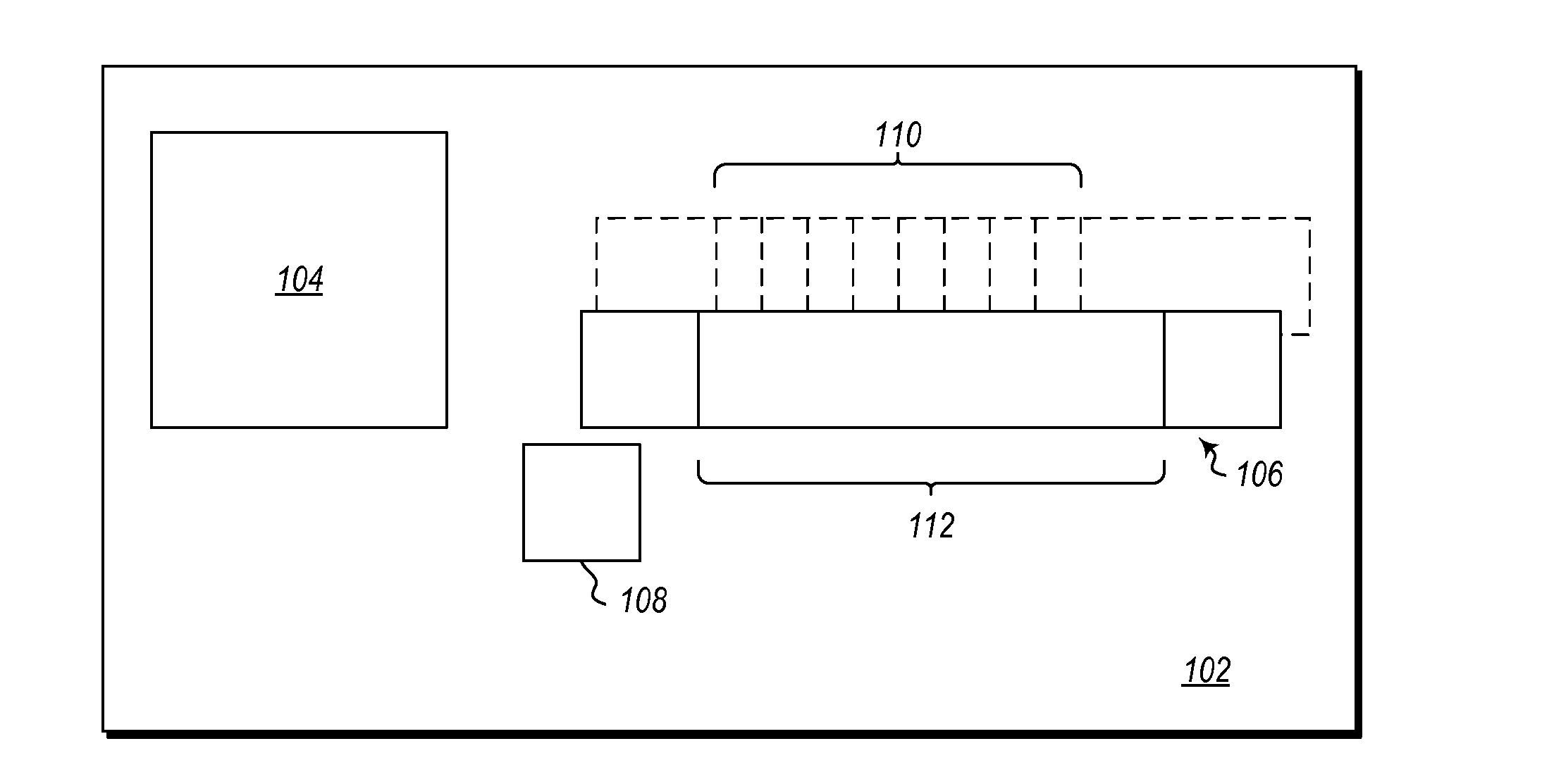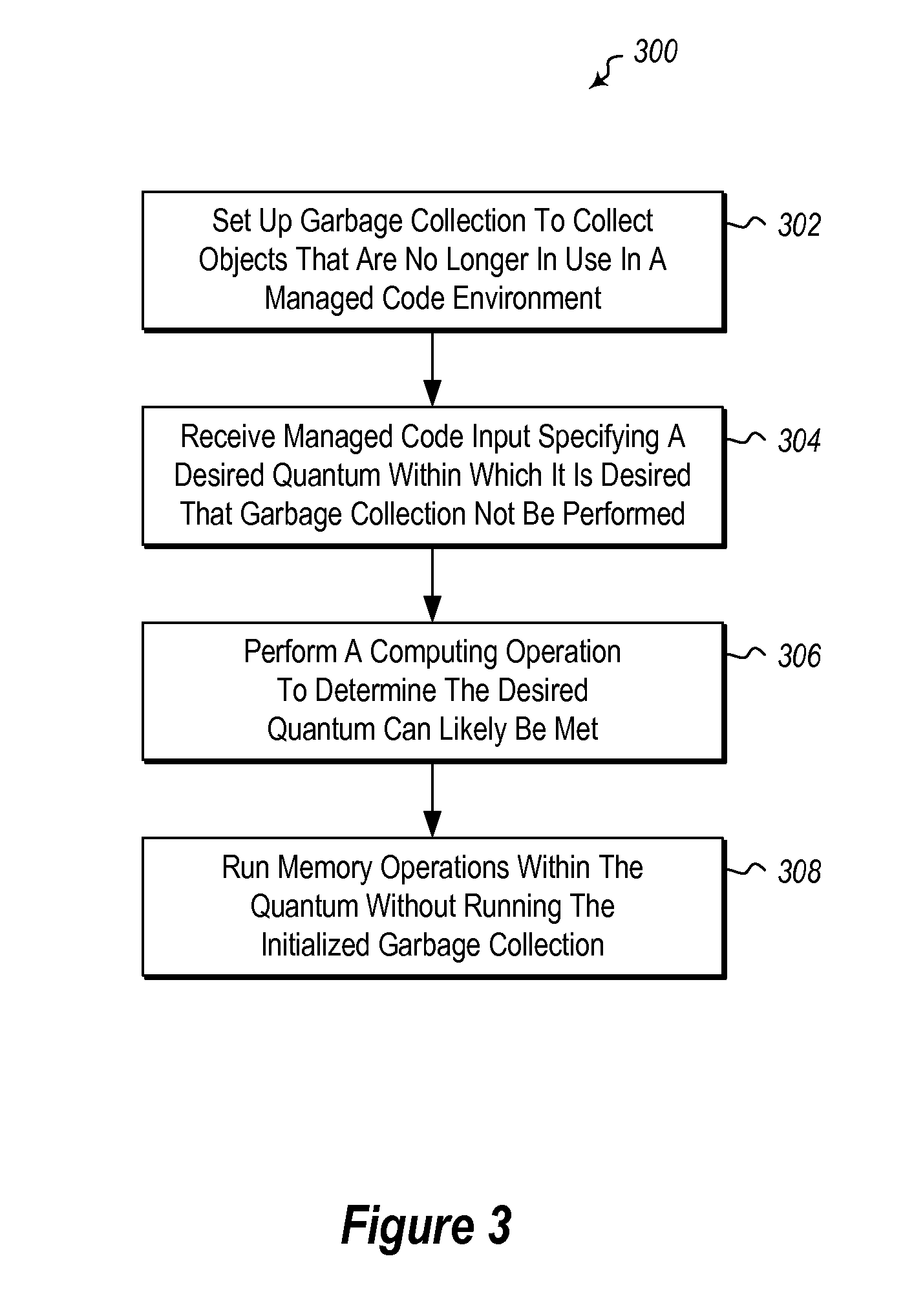Garbage Collection Control in Managed Code
a garbage collection and managed code technology, applied in the direction of memory adressing/allocation/relocation, instruments, computing, etc., can solve the problems of garbage collection being triggered, managed code giving reduced returns, and 1 ms woefully insufficient to perform garbage collection on a memory heap
- Summary
- Abstract
- Description
- Claims
- Application Information
AI Technical Summary
Benefits of technology
Problems solved by technology
Method used
Image
Examples
Embodiment Construction
[0016]Embodiments herein may implement functionality, for managed code applications, to prevent (or at least attempt to prevent) garbage collection from occurring for some user specified quantum. Thus, for example, a user may specify that garbage collection should not occur for some given period of time. Embodiments can perform certain operations to determine if garbage collection can be suspended for the period of time specified. Such operations may include, for example, determining that sufficient free memory likely exists in the memory to suspend garbage collection, pre-committing portions of the memory to meet the user specified quantum, and / or simply turning off garbage collection for the specified period of time. In other embodiments, the user may specify a quantum of memory that it would like to use without interruption from garbage collection. Again, in response, the system can perform operations such as determining that sufficient free memory likely exists in the memory to ...
PUM
 Login to View More
Login to View More Abstract
Description
Claims
Application Information
 Login to View More
Login to View More - R&D
- Intellectual Property
- Life Sciences
- Materials
- Tech Scout
- Unparalleled Data Quality
- Higher Quality Content
- 60% Fewer Hallucinations
Browse by: Latest US Patents, China's latest patents, Technical Efficacy Thesaurus, Application Domain, Technology Topic, Popular Technical Reports.
© 2025 PatSnap. All rights reserved.Legal|Privacy policy|Modern Slavery Act Transparency Statement|Sitemap|About US| Contact US: help@patsnap.com



